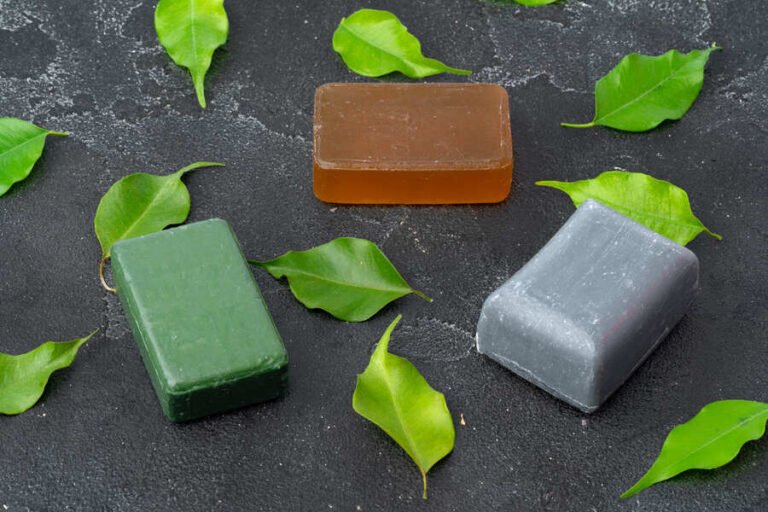Curious about what goes into making your favorite lip gloss? Ever wondered about the ingredients and their benefits? In this article, we'll explore the world of lip gloss and delve into the components that make up this popular cosmetic.
From base ingredients like wax and petroleum jelly to oils, fragrances, and pigments, we'll uncover the secrets behind its creation. Discover the moisturizing properties, longer-lasting gloss, and sun protection lip gloss can provide.
Join us on this journey to learn what lip gloss is made of and the benefits it brings.
Key Takeaways
- Lip gloss is made from a base of wax or petroleum jelly, combined with various ingredients like oils, fragrances, and pigments.
- The ingredients in lip gloss can be personalized to suit different needs, with options for emollients, waxes, thickeners, anesthetic agents, fragrances, color pigments, and antioxidants/sunscreen.
- The benefits of lip gloss ingredients include moisturizing, sealing in moisture, preventing dripping, soothing irritated lips, improving scent, adding color and vibrancy, and protecting the lips from damage and UV rays.
- When choosing lip gloss, it is important to seek out products with safe ingredients, such as natural and organic options, vitamin E and zinc oxide for sun protection, and to avoid harmful ingredients like parabens and synthetic antioxidants.
The Base Ingredients: Wax or Petroleum Jelly
First, let's talk about the two base ingredients that are commonly used in lip gloss: wax or petroleum jelly. Different types of lip gloss bases have their own pros and cons.
Wax, such as beeswax or carnuba wax, is often used in lip gloss formulations. It helps to thicken the gloss and provide a longer-lasting shine. Wax also helps to seal in moisture, keeping your lips hydrated and preventing dryness.
On the other hand, petroleum jelly is another popular base ingredient. It has excellent moisturizing properties, making it ideal for dry or chapped lips. Petroleum jelly also gives a glossy finish to the lips. However, some people may find it to be a bit sticky.
Essential Oils: Emollients for Moisture and Softness
Now let's delve into the benefits of essential oils, which work as emollients to provide moisture and softness to your lips. Essential oils are natural plant extracts that offer various benefits when incorporated into lip gloss. Here are three reasons why essential oils are beneficial in lip gloss:
- Hydration: Essential oils like coconut oil, argan oil, and jojoba oil are rich in fatty acids that deeply moisturize the lips. They help prevent dryness and chapping, keeping your lips soft and supple.
- Nourishment: Essential oils contain vitamins and antioxidants that nourish and protect the delicate skin of your lips. They help repair damage and reduce the signs of aging, leaving your lips healthy and rejuvenated.
- Soothing: Some essential oils, such as peppermint and lavender, have soothing properties that can calm and relieve irritated lips. They provide a gentle and refreshing sensation, making your lip gloss application a pleasant experience.
Nourishing Waxes: Carnauba, Shea Butter, Lanolin, and Beeswax
To nourish your lips and provide moisturization, lip gloss contains a combination of nourishing waxes such as carnauba, shea butter, lanolin, and beeswax. These waxes offer numerous benefits for your lips.
Carnauba wax, derived from the leaves of the carnauba palm, helps seal in moisture and provides a protective barrier against harsh environmental conditions.
Shea butter, extracted from the nuts of the shea tree, is rich in vitamins and fatty acids, deeply moisturizing and nourishing the lips.
Lanolin, obtained from sheep's wool, is a natural emollient that locks in moisture, keeping your lips soft and supple.
Beeswax, produced by bees, acts as a natural humectant, attracting and retaining moisture.
When choosing lip gloss, opt for products that contain these nourishing waxes to keep your lips healthy and hydrated. Ensure to select lip glosses with safe ingredients, avoiding harmful substances like parabens and synthetic antioxidants.
Thickeners and Texture Enhancers: Beeswax, Ozokerite, and Clays
For a thicker and more textured lip gloss, you can use thickeners and texture enhancers like beeswax, ozokerite, and clays. These ingredients not only enhance the consistency and feel of the lip gloss but also provide additional benefits for your lips.
Here are three benefits of using thickeners in lip gloss:
- Improved longevity: Thickeners like beeswax help the lip gloss adhere to your lips for a longer period of time, reducing the need for frequent reapplication.
- Enhanced moisturization: Thickeners act as emollients, locking in moisture and preventing dryness, leaving your lips feeling soft and hydrated.
- Added texture: Thickeners give the lip gloss a smooth and creamy texture, making it easier to apply and giving your lips a luxurious feel.
Different types of clays are also used as texture enhancers in lip gloss. These clays, such as kaolin clay and bentonite clay, help to absorb excess oils and provide a matte finish, perfect for those who prefer a non-shiny look.
Soothing Agents: Camphor, Menthol, and Mint
If you're looking for lip gloss that provides soothing relief for your lips, consider options with camphor, menthol, and mint. These soothing agents offer a range of benefits for your lips.
Camphor has been used for centuries for its cooling and soothing properties. It can help alleviate dryness and irritation, leaving your lips feeling refreshed.
Menthol, with its minty scent and cooling sensation, provides a soothing effect and can help relieve discomfort.
Mint, with its natural antibacterial properties, can also help soothe and calm any irritation on your lips.
However, it's important to note that some lip glosses may contain synthetic fragrances, which can be potential risks for skin sensitivity and allergies. When choosing a lip gloss, opt for natural and organic options to minimize these risks and ensure the best care for your lips.
Fragrance Boosters: Essential Oils for a Pleasant Scent
Enhance your lip gloss experience with the delightful aroma of essential oils. Not only do essential oils provide a pleasant scent to your lip gloss, but they also offer a range of benefits. Here are three reasons why you should consider using essential oils in your lip gloss:
- Natural Fragrance: Essential oils are derived from plants and flowers, giving your lip gloss a natural and refreshing scent. Unlike synthetic fragrances, essential oils are free from harmful chemicals and toxins, making them a healthier choice for your lips.
- Therapeutic Properties: Many essential oils have therapeutic properties that can benefit your lips. For example, lavender oil has calming and soothing properties, while peppermint oil can provide a cooling sensation. Choose essential oils based on the specific benefits you want to experience.
- Customization: Essential oils come in a wide variety of scents, allowing you to customize your lip gloss according to your preferences. Whether you prefer floral, fruity, or herbal scents, there's an essential oil that will suit your taste.
When choosing a fragrance for your lip gloss, consider the following tips:
- Research the properties and benefits of different essential oils.
- Test the scent on a small area of your skin to ensure you aren't allergic.
- Experiment with different combinations to create your signature scent.
Colorful Pigments: FDA-Approved Dyes and Natural Extracts
You can add vibrant color to your lip gloss with FDA-approved dyes and natural extracts.
When it comes to lip gloss colors, choosing the right shade for your skin tone can make a big difference. For fair skin tones, light pinks and nudes can create a natural and fresh look. Medium skin tones can rock a wide range of colors, from soft corals to deep berries. Darker skin tones can pull off bold and intense shades like burgundy and plum.
Natural extracts, on the other hand, offer additional benefits for lip gloss formulas. Ingredients like fruit extracts, such as strawberry or cherry, provide a subtle tint while offering antioxidant properties. Plant-based extracts like aloe vera or green tea can soothe and hydrate the lips.
Protection and Preservation: Antioxidants and Sunscreen
To protect and preserve your lips, lip gloss is formulated with antioxidants and sunscreen to shield them from damage caused by the sun's rays.
Antioxidants play a crucial role in protecting your lips from harm. They work by neutralizing free radicals, which are unstable molecules that can damage cells and lead to premature aging. By incorporating antioxidants like vitamins E and C and fruit-based extracts into lip gloss, your lips are safeguarded against environmental stressors.
On the other hand, sunscreen in lip gloss provides an additional layer of defense by blocking harmful UV rays. It helps prevent sunburn, sun damage, and the risk of developing lip cancer.
While both antioxidants and sunscreen are important, sunscreen takes precedence when it comes to protecting your lips from the sun's harmful rays.
Frequently Asked Questions
Can Lip Gloss Be Used as a Substitute for Lip Balm?
Lip gloss can't fully replace lip balm, but it has benefits. Gloss offers shine and can make lips appear plumper. Lip balm, on the other hand, provides more moisture and protection against dryness.
Is It Safe to Use Lip Gloss Every Day?
Using lip gloss every day may have long-term effects on your lips. Different types of lip gloss, such as sheer, tinted, shimmer, and glitter, offer varying levels of color and shine for daily use.
Are There Any Potential Side Effects of Using Lip Gloss?
Using lip gloss on chapped lips may have potential risks. The impact of lip gloss ingredients on lip health varies. Choose products with safe ingredients, test them first, and prioritize high-quality options for healthy skin.
How Long Does Lip Gloss Typically Last Before It Expires?
Lip gloss, your shiny companion, lasts around 1-2 years before it expires. Keep it fresh by storing it in a cool, dry place and avoiding exposure to sunlight. Enjoy your luscious lips!
Can Lip Gloss Be Used on Sensitive or Allergic Skin?
Yes, lip gloss can be used on sensitive or allergic skin. However, it's important to test the product first to see how your skin reacts. Some ingredients in lip gloss can cause acne or dryness for certain individuals.
Conclusion
In conclusion, lip gloss is a fascinating cosmetic product made up of a variety of ingredients that contribute to its unique properties. From the base ingredients like wax or petroleum jelly to the nourishing waxes, essential oils, and fragrances, each component plays a crucial role in creating the perfect lip gloss.
One interesting statistic to note is that the global lip gloss market is projected to reach a value of $1.4 billion by 2025. So, the next time you apply your favorite lip gloss, remember the science and artistry that goes into its creation!







